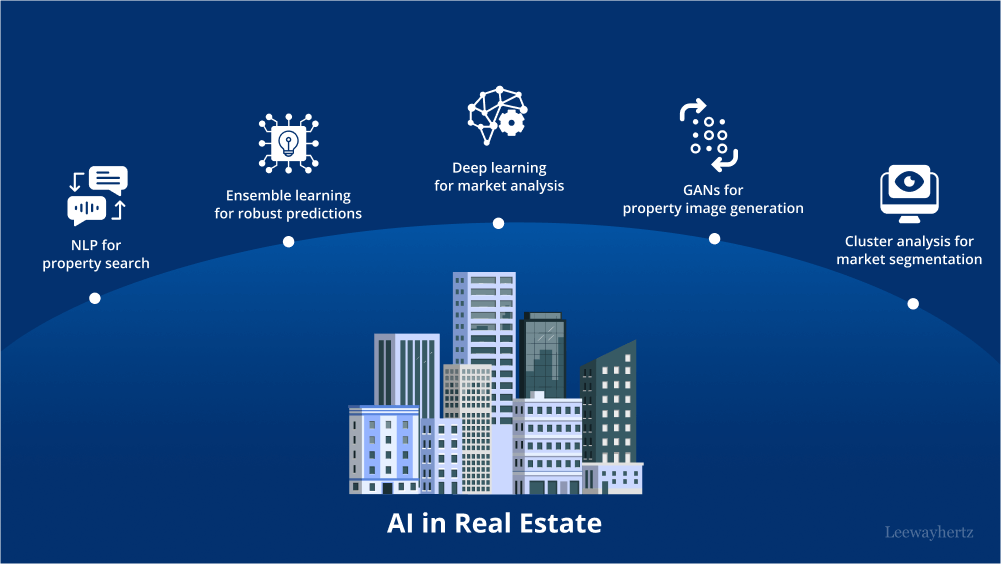Artificial Intelligence (AI) is revolutionizing the real estate industry by enhancing property management, streamlining transactions, and improving decision-making. Understanding how to effectively use AI in real estate can lead to smarter investments, increased efficiency, and improved customer experiences.
How Can AI Be Used in Real Estate?
AI in real estate leverages data analytics, machine learning, and automation to assist with buying, selling, renting, investing, and managing properties. From property search algorithms to predictive market trends, AI is transforming how real estate professionals and consumers interact with the market.
Key Ways to Use AI in Real Estate
Property Valuation and Price Prediction
AI-powered valuation tools analyze data such as location, market trends, nearby amenities, and historical pricing to provide accurate property valuations. This helps buyers and sellers make more informed pricing decisions and reduces the need for manual appraisals.
Smart Property Search and Recommendations
AI enhances search engines on real estate platforms by learning user preferences and behavior. It can suggest properties tailored to a buyer’s needs, improving user experience and increasing the likelihood of conversion.
Predictive Analytics for Investment Decisions
AI can forecast market trends, rental yields, and property appreciation by analyzing large volumes of historical and current data. This empowers investors to identify high-potential areas and make strategic investment choices with reduced risk.
Virtual Assistants and Chatbots
AI-driven chatbots can handle inquiries, schedule viewings, and provide 24/7 support to potential buyers or tenants. This reduces response time and boosts engagement without overburdening human agents.
Automated Property Management
AI tools can streamline property management by automating rent collection, maintenance requests, and tenant communication. Machine learning can also predict when equipment may fail, enabling preventive maintenance.
Risk Assessment and Fraud Detection
AI systems can analyze documents, credit scores, and transaction patterns to detect inconsistencies or potential fraud in real estate deals. This ensures safer transactions and greater compliance with legal standards.
Virtual Tours and Augmented Reality
AI, combined with AR and VR, enables immersive virtual property tours, allowing prospective buyers to explore homes remotely. This is especially useful in long-distance or overseas purchases.
Considerations When Using AI in Real Estate
While AI brings significant advantages, it’s important to use it responsibly:
- Data Privacy: Ensure client data is handled securely and transparently.
- Ethical Use: Avoid reinforcing biases in property recommendations or pricing models.
- Human Oversight: Use AI as a support tool, not a replacement for expert real estate judgment.
Conclusion
AI is becoming an essential asset in real estate, transforming how properties are bought, sold, and managed. From intelligent search to predictive analytics and automation, AI enhances both efficiency and decision-making. By blending technology with human expertise, the real estate industry can deliver better outcomes for clients, investors, and professionals alike.







Leave feedback about this